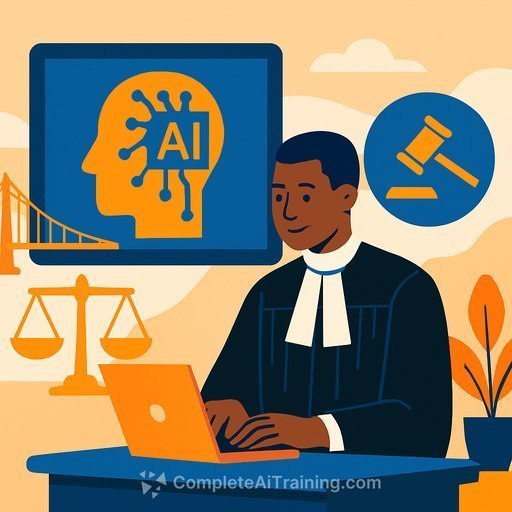Legal Tech Roundup: Investment Flows Into Testimony Intelligence
A fresh investment into a testimony intelligence platform leads this week's legal tech headlines. The signal is clear: litigation teams want tools that make witness prep, deposition analysis, and transcript review faster and more defensible.
Testimony intelligence typically covers automated transcript creation, issue tagging, contradiction spotting, exhibit linking, and structured summaries. The promise is simple-less time in prep, more clarity in examination, and cleaner records for motion practice and trial.
Why it matters for litigators and in-house counsel
- Deposition prep: Faster transcript digestion, targeted outline building, and suggested follow-ups cut hours off prep cycles.
- Live support: Real-time note capture and issue flagging help teams stay focused while building cleaner records.
- Post-depo workflow: Rapid summaries, hotspot identification, and timeline mapping accelerate case assessment and motion drafting.
- Consistency: Centralized tagging and templates help standardize prep across busy teams and outside counsel.
Due diligence checklist before you pilot
- Security and privacy: SOC 2 report, data residency options, encryption at rest/in transit, SSO, and granular role permissions.
- Privilege protection: Clear data-handling terms, redaction workflows, retention controls, and export auditing.
- Model safeguards: Source citations, confidence flags, prompt history logs, and clear escalation when outputs are uncertain.
- Evidence integrity: Immutable audit trails, time-stamped edits, and chain-of-custody reports for transcripts and exhibits.
- Integrations: DMS, matter management, and eDiscovery connectors; bulk import/export in common formats (PDF, TXT, CSV).
- Economics: Transparent pricing, seat vs. usage costs, overage rates, and a path from pilot to enterprise terms.
- Vendor durability: Funding runway, roadmap visibility, and a named data protection officer with contact details.
Policy and ethics guardrails to refresh
Revisit your tech competence and confidentiality policies, including how your teams validate AI outputs and document that review. Align your practice with an AI risk framework and deposition rules to keep process discipline tight.
90-day pilot plan that actually ships
- Days 0-30: Choose 2-3 matters. Define success metrics: hours saved per deposition, summary accuracy, and review turnaround. Lock scope and data flows.
- Days 31-60: Run side-by-side with current process. Benchmark transcript QA, issue tagging precision, and export quality. Capture feedback from partners and litigation support.
- Days 61-90: Tighten templates, finalize SOPs, and train a small champion group. Present ROI with clear go/no-go criteria and a scaled rollout plan.
Questions your vendor should answer in writing
- What data do you retain, for how long, and can we opt out of training your models?
- How do you cite sources for each claim made in summaries or "insights"?
- What is your error reporting workflow and SLA for production incidents?
- Can you support isolated environments and customer-managed keys?
- What controls exist to prevent leakage between matters and clients?
Other shifts legal teams are watching
- Ediscovery speed vs. quality: Tools are getting faster, but courts still expect documented validation and sampling.
- Court tech modernization: More clerks accept annotated digital exhibits and synchronized video/transcript packages.
- Contract analytics convergence: Clause libraries and review copilots are improving handoffs to litigation when disputes arise.
Bottom line
The new capital moving into testimony intelligence won't change the basics: accuracy, defensibility, and cost control win the day. If you can prove better record quality and measurable time savings without adding risk, you'll get adoption from partners and clients.
If your team needs practical AI upskilling to evaluate these tools with confidence, explore curated programs by role here: Complete AI Training - Courses by Job.
Your membership also unlocks:






